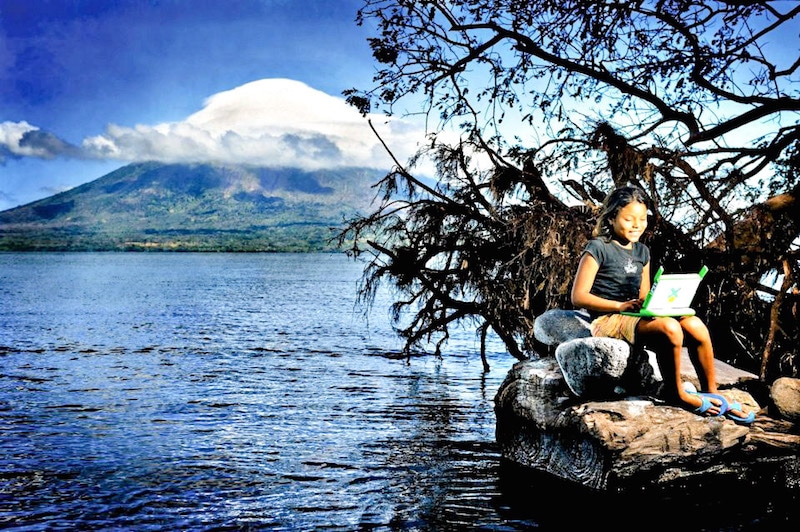Originaly posted ON

By Leah Shadle on behalf of One Laptop Per Child
In the heart of Nicaragua lies the largest lake in Central America, Lake Nicaragua. Millions of years ago, a volcanic eruption formed a curious island in this freshwater lake composed of two volcanoes — Concepcion and Maderas — the former of which is still active. Concepcion has an altitude of 1,610 meters, which makes Ometepe the world’s highest island on a lake. Volcanic ash has created an extremely fertile island and the volcanoes are visible everywhere on the island. Ometepe is truly a paradise, with its tropical, lush and magical air and soil.
In addition to the natural brilliance of the island and its volcanoes, Ometepe recently became the first digital island in the Americas. To put that in numbers, 100% of its 5,000 elementary school children and all teachers received a laptop connected to high-speed Internet, as part of the One Laptop Per Child educational initiative. Participating students and teachers receive OLPC laptops and the training and support needed to truly realize the potential of these machines
Continue reading HERE.









